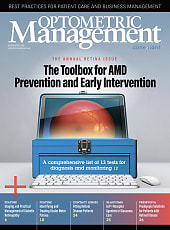As you age, joy can be found by embracing a new set of skills
We often hear of people who dread their 40th, 50th, or 60th birthdays. Do they fear decline? What exactly is decline? If it is that we are not the same as we were in our 20s, is that really all that bad? As it turns out, the skills we possess in our 20s will decline over time. However, the skills we develop in our 40s and 50s, if nurtured, can improve with age. Embracing this change can impact our future happiness.
TWO TYPES OF INTELLIGENCE
In From Strength to Strength: Finding Success, Happiness, and Deep Purpose in the Second Half of Life, author Arthur C. Brooks, a Harvard University Business professor, walks us through the science that demonstrates the strengths in the second half of our lives are different than those of our first half. That is, everyone has two different types of intelligence: The first, and earliest to develop, is our fluid intelligence, which is “the ability to reason, think flexibly, and solve novel problems.” (Think of inventors and innovators recognized for great achievements before they turned age 30.)
The second type of intelligence is crystalized intelligence, which Prof. Brooks defines as “the ability to use a stock of knowledge learned in the past… This intelligence increases with age and does not diminish until quite late in life if at all.”
How can this knowledge influence our future?
If you are younger than age 40, innovate now, but plan to bring in young blood to take over that innovation. Then, team up with someone over age 50 who can offer crystalized intelligence to help your awesome ideas succeed. As Prof. Brooks writes, “Glean the wisdom and experience from people who have seen a lot, have already made every mistake in the book, and can teach the younger folks before they make avoidable errors.”
With your team in place, look to use or repurpose your increasing crystalized intelligence — and get excited about the next half of your life.
If you are over age 50, nurture your crystalized intelligence by reading more, writing more, and speaking more in your profession, in your social groups, and beyond.
Consider mentoring a younger person to help them apply their fluid intelligence to real-life situations. You will be pleasantly surprised to see, as the author says, that “as you get older you will have greater wisdom. . . you will know what the facts you learned in your youth actually mean and you will know how to use them.” Start sharing what you have learned because, guess what? You have learned a lot.
STARTING THE TRANSITION
The jump from your first to your second strengths doesn't always happen easily. Prof. Brooks says this is because we tend to
- Be Addicted to work/success
- Be attached to rewards
- Fear decline
To make the second half of your life a success, he advises:
- Develop your relationships.
- Start your spiritual journey.
- Embrace your weaknesses.
When we are young, we should learn from those older who are doing it well. When we are old, we should help the young who are willing to learn how they can make that transition even better.
Isn’t it amazing that our joy today and in the future is something we can influence? Spoiler alert: Real joy requires more than just “me.” OM
Email: april.jasper@pentavisionmedia.com
Twitter: @DrAprilJasper
Facebook: @OptometricManagement




